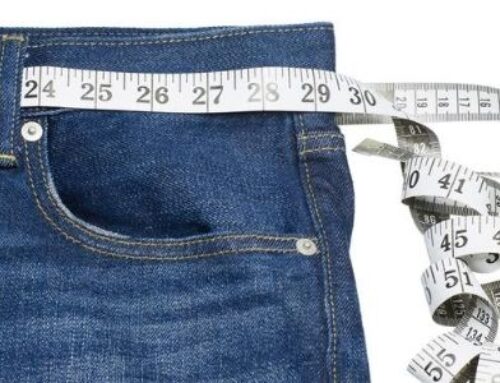
When trying to lose weight, separating myths from truth is a difficult feat. Weight loss myths are created when a small piece of information is generalised into a “one-size-fits-all” statement. These blanket statements fill the media, creating the frustrating challenge to find what really works. Let’s explore 6 common weight loss myths, and point you in the right direction for healthy weight management.
Weight Loss Myth: Fad diets will help me lose weight and keep it off.
The Truth:
Fad diets promise quick fixes, promote magic foods and exclude entire food groups. These diets are often supported by personal testimonials, rather than scientific evidence.
The initial weight lost on a fad diet is mostly muscle and water, not fat. Fad diets often don’t provide the body with enough fuel, which causes the body to break down muscle for energy. This isn’t ideal for long-term weight loss or health. Fad diets are often so strict they are nutritionally inadequate and difficult to sustain. The cycle of starting, stopping and restarting a diet is frustrating and doesn’t provide a long-term solution.
Approaching weight loss with a fad diet is unlikely to set you up for success. No one wants to be on a ‘diet’ forever. Instead, create SMART (Specific, Measurable, Attainable, Relevant, Time bound) goals to change your lifestyle. Focus on gradually becoming a healthier, happier and fitter person through incremental change.
Here are some SMART goals that focus on small, achievable strategies that result in long-term changes:
- Carry a drink bottle with you at all times throughout the day
- Walk with friends 3 times this week
- Bring lunch to work 4 out of 5 days next week
- Try 4 new recipes this month
Weight Loss Myth: There are magic foods that will make me lose weight.
The Truth:
Unfortunately, there is no silver bullet or magic food for successful weight loss.
Our body needs a range of nutrients to keep it healthy and to support weight loss. All foods contain different combinations of these nutrients, so variety is key. Eating a variety of vitamins and minerals together can also increase absorption. For example, Vitamin C increases the body’s absorption of iron.
The closest thing to a magic wand for weight loss is vegetables! They are low in energy but high vitamins, minerals and fibre. They reduce risk of stroke, cancers, heart disease and type 2 diabetes. Vegetables also help you to slow down the eating process and feel full.
Increase your daily intake of vegetables by:
- Keeping chopped vegetables in the fridge to snack on (carrot, snow peas, capsicum, cherry tomatoes)
- Adding a steam-fresh bag of vegetables to your lunch
- Use vegetables to bulk out curries, pasta sauces and casseroles (it’s easy to hide the veggies in these)
- Eating vegetable soups or salads
Weight Loss Myth: To lose weight, I need to cut out carbohydrates.
The Truth:
Very low or no-carbohydrate diets are based on the idea that carbohydrates cause weight gain, but this isn’t the case. Consuming excess energy from any source can increase your weight. Carbohydrates are the body’s preferred fuel source, and are essential to a healthy diet. Cutting carbohydrates can leave you feeling dizzy, nauseous and lethargic. Eliminating carbohydrates often means eliminating a number of foods that are good for your body; sweet potato, legumes and fruit. A true ‘No-Carbohydrate’ diet would limit you to meats and oils, which is not realistic.
To lose weight, limiting some forms of carbohydrates can be beneficial. Added sugar and processed foods (cakes, biscuits, chips, pastry, lollies, soft drink, juice, etc) leave you feeling less satisfied when compared to whole food sources (whole grain breads, oats, sweet potato, regular potato, lentils, beans, chick peas, brown rice, etc).
It’s also important to remember that everyone’s carbohydrate needs are different. It depends on age, activity level, health and fitness goals as well as physiological factors like insulin resistance. Rather than unnecessarily eliminating foods, talk to a nutritionist or dietitian who can help you understand what your carbohydrate requirements are, and how to reach these with whole foods.
Weight Loss Myth: Eating fats will make me fat.
The Truth:
Limiting fat intake can be helpful in assisting weight loss. As fats are very energy dense, large amounts of fat can increase total energy consumed. This creates a surplus of energy, resulting in energy and weight gain.
To moderate daily energy intake, limit excess fats from takeaway and processed foods.
In small portions, fats support good health and are unlikely to cause weight gain. Fats help the absorption of some vitamins into the body, keep your skin and hair healthy as well improve immunity. Fats also makes meals more palatable and satisfying.
Here are a few ways to include healthy fats from whole food sources:
- Add seeds to your breakfast
- Snack on nuts
- Add avocado to your sandwiches
- Add olives and a dressing to your salads
- Try the Toasted Smoked Salmon Wrap, it is a delicious way to include fats from fish
Weight Loss Myth: To lose weight I have to eat less.
The Truth:
This statement often oversimplifies the complex process required to achieve weight loss and maintain a healthy weight. It’s true that an energy deficit is necessary to achieve weight loss. However, ‘eating less’ is not the only way to achieve an energy deficit.
The amount of food you eat isn’t as important as the energy content and nutrients in the food. For example, 20g of milk chocolate has 8 times the energy of 20g of apple. The amount of food is the same but the apple is much lower in energy and higher in nutrients. Without eating less, an energy deficit can be created by switching to foods with lower energy densities.
Here are some great ways to eat more, while still lowering your energy intake:
- Fill half your plate with vegetables at lunch and dinner
- Chop up a salad to have with your take away food
- Add heaps of frozen vegetables in with your casserole
- Try some vegetable snacks
- Choose whole fruits instead of juice or dried fruits
Weight Loss Myth: If it worked for me, it will work for you.
The Truth:
Every person is a unique individual and this is what brings variety and fun into life. Because we are individuals, the best weight loss strategy is different for each person. There are a number of factors that can impact on a person’s weight. Some of which include:
- Their habits;
- the environment;
- any medical conditions; and
- medications.
These influences (and many more) interrelate when it comes to weight. This is why a simple “one-size-fits-all” approach just doesn’t cut it. If a weight loss strategy worked for a friend that doesn’t mean it will definitely work for you. Successful weight loss requires individual lifestyle and behaviour modifications to help support long-term change.
Successful long-term weight loss is best achieved through making achievable modifications to diet, exercise and lifestyle habits. Weight loss myths often send us in the wrong direction and rarely help us focus on achieving long-term goals.
If you are struggling with weight loss and feel confused with all the conflicting information, book an appointment at The Healthy Eating Hub. Our team of Nutritionists and Dietitians can help you wade through the myths of weight loss and finds whats right for you.
This article was written by Michelle Beecher, intern from the University of Canberra at The Healthy Eating Hub.
If you’d like further help with your nutrition please click below:
References:
- Department of Health & Human Services. Better Health Channel [internet]. Victoria: State Government of Victoria (2016). Available from https://www.betterhealth.vic.gov.au/
- Greenway F.L. Physiological adaptions to weight loss and factors favouring weight regain, International Journal of Obesity (2015) 39, 1188-1196.
- National Institute of Diabetes and Digestive and Kidney Diseases. Weight-loss and Nutrition Myths [internet]. United Kingdom: National Institute of Health (2016). Available from: https://www.niddk.nih.gov/health-information/health-topics/weight-control/myths/Pages/weight-loss-and-nutrition-myths.aspx





